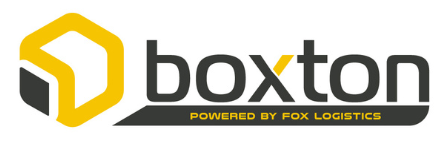Top 4 areas of interest in logistics for 2019 & the companies that are making the biggest impact – Hint – It’s all about keeping up with Amazon
As another year in the logistics world comes to a close, I wanted to reflect on some of the events of 2018 and highlight how they may shape the trends and performances of 2019. Each year since 2003 I’ve studied these trends, watched the rate increases, and monitored the technology. Each year, logistics and commerce are brought closer together, largely through this technology. But more recently, we’ve seen significant advances in the ways supply chains are accessing and leveraging labor and data. These advancements, along with the frothy capital markets, have made for a banner year for funding and M&A events within the supply chain and logistics space.
Here are the top 4 areas to watch in 2019 in Supply Chain & Logistics and the companies that are moving the industry forward.
Trucking Marketplaces
Uber for Trucking is here, and it’s not only Uber in the land grab for the next generation of shippers, carriers, and drivers. Several companies have made meaningful progress in building robust marketplaces with niche focuses (for now) that are adding value for their customers and have become more instrumental to the success of some of America’s largest shippers. Many of these firms have made significant investments in technology to automate operations by connecting to various TMS systems, which in turn is powering much of the exponential growth we’re seeing in this segment.
Cargomatic – First to market in the Uber for Trucking revolution, LA based Cargomatic has been around now for more than 6 years. Regardless of what you may have read in Business Insider a couple of years ago, Cargomatic is alive and well. Now, more than 5 years old and with $35M in recent funding from Warburg Pincus – Cargomatic is building out their executive and sales teams, as well as expanding into new geographies. 2019 should prove to be an interesting year for them as they scale into new areas of the US with the support of their enterprise customer base including Genesee & Wyoming, who participated in this most recent round of funding.
NEXT Trucking – This tech-enabled trucking marketplace was born inside of a small trucking business outside of Los Angeles. Lydia Yan (CEO) has done a great job of taking inside knowledge of the trucking space and applying technology to the right areas. The result was a $21 million dollar funding round led by Sequoia Capital. You can expect Yan to deploy this capital towards expansion in 2019.
Emerge TMS – Freight technology veterans and Founders of both GlobalTranz & 10-4 Systems, Andrew and Michael Leto, set out to go 3 for 3 with their most recent start up – Emerge TMS. After selling 10-4 Systems to Trimble last year and then selling Globaltranz in June, the brothers Leto were able to raise $20 million in a seed round this year. Yes, you read that right, a TWENTY-MILLION-DOLLAR-SEED-ROUND. With that kind of money, and the Leto’s steering the ship, there’s no question Emerge TMS will be able to build on its already impressive success.
Convoy – As (arguably) the first unicorn in the logistics-tech space, Dan Lewis and his team at Convoy continue to raise the bar and expectations for growth in tech-enabled logistics. With $185 million of Google’s money, Convoy has wasted no time in growing their team with more than 100 open roles on the company’s website at the time of this writing. Convoy seems to be very focused on gaining market share in Texas and the Southeast where competitor Uber Freight has built density. Convoy’s success in the Pacific Northwest, along with the dry powder from Alphabet, spells almost certain success in the race for shippers and truckers in the digital age.
Time Definite Transportation
It’s been more than well documented that customers now expect everything delivered yesterday, for free. I kid, I kid. But seriously, fast shipping is the norm now, as in faster than FedEx and UPS used to be able to deliver. Amazon has created a blueprint for the successful supply chain and let’s face it, the rest of us are trying to keep up (or more likely, catch up). The traditional “Freight Emergency” delivery time has become the norm and these firms are paving the way for faster-than-ever shipping services.
Quick International Courier / Kuehne & Nagel – Quick is a 35+ year old company that has been offering Expedited ground and air courier services to the healthcare, aerospace and fashion industries since it began service. More recently, manufacturers and retailers have been scouring their supplier’s networks for more capacity. The “Amazon Effect” has created a “Final Mile Pull” from distribution centers as products are flying off of warehouse shelves faster than ever before. This trend enticed Kuehne & Nagel to snap up Quick Courier last week for an undisclosed amount. No doubt K&N sees their client’s desire to decrease cycle times while maintaining a favorable cost basis on their transportation. This acquisition will support KN in their ongoing effort to gain larger percentages of their global customer’s supply chain spend.
Airspace Technologies – Airspace is a tech enabled courier company based in Carlsbad, CA. Also capitalizing on the customer’s evolving need for speed, Airspace has built a network of “Uber” like drivers that are TSA certified and connected to Airspace through a mobile app. Their technology seamlessly integrates their driver network with the underutilized belly capacity of commercial airlines, giving shippers hyper fast, secure and accurate delivery options. This approach has allowed Airspace to quickly gain favor from some of America’s largest time definite shippers. With clients like Labcorp, Frontier Airlines and FedEx, this 4 year old firm has been able to raise a small war chest in venture capital in 2018 and plans to more than double its staff of 80 with an expected 100 new hires in 2019. With funding rounds of $8M led by Defy.vc & Qualcomm Ventures and $20M led by Scale Venture Partners in 2018, Airspace is positioned to further disrupt incumbents like MNX, Network Global Logistics and Quick International while supporting same day services for major players like FedEx and DHL. Nick Bulcao, the company’s Founder & CEO plans to use his new money to expand internationally while hardening an already impressive technology platform that gives his company the edge over its competitors.
Roadie & Delta Airlines – When most people think of Roadie, they probably remember the way they started out, as a crowd-sourced transportation network where normal people could ship normal things on the cheap by posting an item for transport and letting other folks handle the hauling when and if they were already headed that way. Think: college kid delivering your heirloom on their way home for break. It was a way people could make extra money by helping other people ship their items. They were almost like Uship, when Uship began. Fast Forward to today and you’ll see another side of Roadie. This summer, the firm announced a 3 year ongoing pilot whereby Roadie drivers have been helping deliver lost luggage for Delta Airlines passengers. Delta has also indicated its ambitions to offer parcel shipping through an integrated partnership with a ground delivery firm, perhaps Roadie. This powerful combination would support lightning fast shipping at lower price points than currently offered today, in theory and is only just now becoming a possibility with the advance of the gig economy and mobile technology.
Deliv & American Airlines – While it’s easy to confuse Deliv with Postmates, GrubHub, Uber Eats or any other on demand delivery firm – I will challenge you to look one layer deeper. That’s because Deliv’s CEO Daphne Carmelli has intelligently avoided the “marketplace appeal” that’s taken over the focus of Uber and Postmates. The reason is that Carmelli always saw the need for a turnkey, on demand, logistics solution for everyone. This has been particularly attractive to Walmart and more than 1,000 other major retailers who see Deliv as being core to their “How are we going to compete with Amazon strategy?”. Deliv has built the driver network AND the enablement technology that allows retailers of all size the ability to offer “Same Day Delivery” in the shopping cart. Most recently, Deliv announced a partnership with American Airlines that sounds very similar to that of Roadie & Delta, however – American Airlines sees cargo growth driven by ecommerce as being key to growth and very much views Deliv as a valued logistics partner and core to AA’s desire to offer door to door passenger AND cargo services. This relationship will be quite interesting to track in 2019 and beyond.
Visibility & Data
Project44 – One of Chicago’s hottest tech companies, Project44 is bringing trucking into the 21st century. With a deep expertise in Logistics and Technology, Jett McCandless saw the API revolution coming and began building P44 while running his consulting firm, Carrier Direct. Since it’s beginning in 2014, P44 has done a tremendous job claiming the title as leader in “Freight Visibility”. With $45M in recent funding this year, McCandless wasted no time in deploying his bounty on global expansion with the acquisition of Gatehouse Logistics just this week. The merger positions P44 as the world’s first global logistics visibility platform. With plenty of folks trying to catch up to McCandless and team, 2019 will be an interesting and telling year for P44 and the entire “Logistics Visibility & Data” space.
Freightos – As one of the first truly enterprise grade Logistics Tech start ups, Freightos has built an impressive lead amongst the many companies vying for the leader position in Ocean Freight rate management & analytics. With arguably the most impressive Non-US based investor bases, Freightos is backed by GE Ventures, Ourspace & Singapore Exchange Limited, amongst others. With a $44.5M Series C under their belt this year and a recent partnership with CMA CGM, the first of its kind, Freightos will more than likely continue to add steamship lines and enterprise shippers to its platform and continue their impressive run to global data dominance. One example of how far ahead Freightos is shines through with their Baltic Index which tracks ocean freight rates in key trade lanes. Just last week, CNBC referenced this index in its report about the global economic climate. It’s worth noting, Zvi Schreiber, the company’s founder and CEO is not your traditional “Startup CEO”. With many years in enterprise software, Zvi has done an amazing job of aligning himself with some of the world’s foremost leaders in SaaS and logistics. There’s no doubt Zvi has the team and the backing to continue this amazing run.
Flexport – Based in SF, led by Silicon Valley darling Ryan Peterson, Flexport has become synonymous with freight digitization in the US. Like Freightos, Flexport was founded to address the multi trillion dollar, antiquated maritime industry. More specifically, Flexport’s goal is to make everything in the world cheaper to buy. Talk about an ambitious BHAG. Since it’s beginning, Flexport has had no problems raising capital, boasting a nearly $1 Billion valuation and has raised more than $300M from arguably, the most impressive list of investors any logistics firm has seen before (except MAYBE Convoy). Most recently, Peterson and team landed a whopping $100M investment from Chinese Logistics firm SF Express. Peterson hasn’t wasted a minute this year, using his fortune to lease planes and hire a big time CFO, Sudhanshu Priyadarshi from Walmart Ecommerce. Priyadarshi is just one of the many impressive execs Peterson has been able to snag while doubling headcount in 2018 to more than 1,000 employees globally. While it’s hard to call a company with more than 1,000 employees a start-up, remember – Flexport was founded in 2013. With a phenomenal 2018 behind them and more money than they need, Flexport SHOULD be able to crack the list as a Top 25 Global Forwarder in 2019, or soon thereafter. Watch for Flexport to acquire another forwarder during 2019 in pursuit of this mission.
FreightWaves – Hailing from Freight Mecca, Chattanooga, Tennessee, FreightWaves is taking Supply Chain analytics into the 21st century. Leveraging new technology and trends in the industry, FreightWaves has become the “Bloomberg of Freight” launching their flagship product Sonar in May, FreightWaves has quickly become the foremost leader in industry and financial data related to freight and transportation. Prior to founding FreightWaves, CEO Craig Fuller spent his life learning the industry in his family’s trucking business, US Express – who coincidentally, IPO’d this year. Fuller has also done an excellent job of promoting his hometown as the freight capital of the US, coining the term “Freight Alley” and developing the Trucking Haul of Fame. Fuller’s experience and FreightWave’s early traction has paid off with a successful $13M Series A led by Jake Medwell of 8VC. Personally, FreightWaves is one of the companies I’m most excited about in our industry if for no other reason than their daily content on social media and newsletter. It’s about time a company claimed the thought leader space in Logistics and Craig and team are doing it the right way. Watch for more exciting concepts like freight futures trading from FreightWaves in 2019.
Boxton – Born inside of large corporate shippers, the Boxton concept proves “necessity is the mother of invention”. Warren Kucker, CEO/Co-Founder of Boxton, dreamt up the idea for his platform while addressing the multi billion dollar problem of “Corporate Shipping Spend” while working at Apple. Boxton’s premise is that most companies focus all of their energies on optimizing their “core logistics” which in large part only addresses their distribution of finished goods to their paying clients. What Warren and team realized at Apple, Inc. was a huge spend existed on “non traditional” freight spend. Not surprisingly, after deploying solutions in this area, the platform has also taken hold with growing companies looking to solve similar complex freight problems through technology. Boxton’s platform, known as “Trello for Shipping”, makes picking the right vendor the easiest choice through a robust suite of collaboration software allowing all stakeholders in the shipping process the ability to access information instantly, making shipping easier and more cost effective. The business has been bootstrapped by the founders until recently when the company raised a small “Friends & Family” round of funding to accelerate growth. With a strong product market fit and several large logos recently onboarded, Boxton will almost certainly become a common name in 2019.
FourKites – Incubated inside of the legendary Pritzker Group, Fourkites is helping shine the light into what’s been a black box within their supply chains. Founder & CEO Mathew Joseph Elenjickal came up with the idea while working in software consulting with some of America’s largest shippers. FourKites’ focus is data aggregation inside the trucking industry, affording shippers greater visibility into their goods, while they are on the road. While many have entered this space and some are making great strides, FourKites’ progress has been more than impressive with claims of growth in excess of 400% month over month for most months in 2018. That growth was enough for FourKites to raise $35M in a series B this year, led by existing investors. With competitors like Macropoint already acquired and part of other, larger software firms, FourKites is looking to expand in Europe and possibly make some acquisitions to move forward faster. 2019 will be an interesting year for FourKites and the entire visibility space.
Finance/Payments
FreightRover – Seeing a gap in trucking tech, CEO of Freight Rover Erik Meeks left his role as President of Celadon to buy his company from his former employer in May of 2017. Since that time, FreightRover has built a massive amount of software aimed at simplifying the entire trucking ecosystem in the US. With tools for shippers, brokers and carriers/fleets, FreightRover is growing fast by partnering with trucking companies large and small. With Meek’s history, FreightRover was able to lock Celadon in as an early alpha user along with other reputable trucking companies. This allowed FreightRover to nail down their product and has enabled explosive growth in 2018, inking deals with some of the largest names in the industry. Besides developing tools for truckers, FreightRover is also building a freight marketplace and payment solutions. They announced in September a move to raise more than $500M in debt financing, which it plans to turn over every month and a half or so, giving FreightRover the ability to deploy $4.5 Billion in 2019 to speed up payments to truckers. This makes FreightRover a company to watch in 2019 and I would expect massive growth and possible international expansion.
Truckstop – Truckstop.com, formerly known as “InternetTruckstop.com” is like the Godfather of digital freight matching. After being acquired by private equity in 2016, Truckstop began an overhaul of the company, adding locations, changing its name and rebranding itself as a data & finance company vs. being just another load board. In doing this, Truckstop has made several high profile new hires in 2018 as well as a strategic acquisition that takes Truckstop directly into the finance/payment arena. With its acquisition of D&S Factors in August, Truckstop is clearly focused on widening its offering and deepening its relationships with carriers and owner operators. As the driver shortage worsens, Truckstop is betting on its ability to build more trust with the carriers while making things easier for all stakeholders. I think this was a smart move for Truckstop and with the recent additions they’ve made to their leadership team, there’s no reason 2019 won’t be a banner year for the Truckstop team.
Trucker Path – As one of the more interesting startups in the space, Trucker Path has evolved significantly since its start in 2013. Known early on as a sort of Yelp! for trucking, Trucker Path was first to market in the “get the truckers to use an app” space. After launching as a navigation and parking app for truckers, the team at Trucker Path smartly realized its potential as a digital broker quickly pivoting to a trucking marketplace for shippers, drivers and brokers. After raising a BOATLOAD of debt in 2017 to enter the freight payment space, Trucker Path was quickly sold to Renren in January of this year, giving it the deep pockets and global reach it will need to be an international player in this space. Trucker Path plans on expanding the services it offers truckers in the US, announcing a partnership with Goodyear in August that will allow truckers to use a Click to Call feature in the Trucker Path app that aims to keep truckers on the road by giving access to efficient and affordable services. Watch for Trucker Path to delve deeper in 2019 by leveraging its app to capture real estate on more trucker’s homescreens by diversifying services and doubling down on its freight payment business.
FWaaS (Fulfillment & Warehousing as a Service) Startups
The “Amazon Effect” has created a “pull” on local warehouses and distribution centers. Years ago, Amazon changed the game by geographically distributing their warehouses and outfitting them with technology platforms that allowed the company to scale operations through tech. But now, new entrants are challenging the norms in this space in targeted ways. These companies are different from more established fulfillment partners (who certainly still have their place) looking to help retailers look and feel more like Amazon from a service perspective without the required investments made by Bezos and company.
ShipBob – Based in Chicago, ShipBob has been an innovator in today’s e-commerce logistics ecosystem. Realizing early on that modern warehouses and distribution models weren’t going to meet every need for the modern consumer, ShipBob has built an impressive stack of warehouses and technology that makes it easy for a retailer of any size to access a nationwide network of warehousing and distribution providers. ShipBob’s model is simple, send them your inventory and orders, then delight your customers. If this sounds a bit Amazonian, it is. ShipBob’s mission is to help the little guy compete with… you guessed it… Amazon. With a recent $40M Party Round behind them, ShipBob is planning on adding more locations and has even hinted about international expansion. They have a great team and a solid lead, 2019 should be good for ShipBob.
CommerceHub – Seeing the e-commerce revolution coming in hot, CommerceHub’s CEO and Founder Frank Poore started the company in 1997, making them the grizzly veteran of this space. Originally, a spin-off of Liberty Interactive and with more than $100M in revenue and close to $10M in earnings for 2017, CommerceHub was acquired by private equity firms GTCR LLC and Sycamore Partners for a whopping $1.1 billion in March of this year! While $100M in revenue is nothing to sneeze at, PE firms don’t buy assets to sit on them which tells us that a lot of smart folks are expecting significant growth in this sector and CommerceHub has a big lead on most of its competitors.
Flexe – Known as the “AirBnB for warehousing”, Flexe’s founder & CEO, Karl Siebrecht likes to think of things in reverse. In this case, AirBnb is the “Flexe for home rentals”. Siebrecht is a savvy business person and sold his last company to Microsoft for $6 Billion. Founded in 2013, Flexe has hit its stride by partnering with omnichannel retailers like Tom’s and others to help with surplus inventory and flexible space as inventory levels fluctuate. Flexe doesn’t own or operate any warehouses, rather they are the conduit between retailers and service providers for warehousing and distribution. Flexe claims shipping savings of up to 35% by simply helping retailers access warehouses that are incrementally closer to their customer bases. Flexe’s growth has been impressive over the past few years in particular and the company was recognized this year by Deloitte & Inc. Magazine for their growth. The company reports a network of more than 900 warehouse locations in their network and hundreds of paying clients. In an interesting move this year, Flexe began marketing its services directly to Fulfillment By Amazon clients as an add on to their FBA strategy. Leveraging Amazon’s recent series of rate increases for FBA services, Flexe is offering a discounted version of some of FBA’s coreservices claiming “We are seeing renewed urgency from sellers looking for ways to protect and increase their margins on Amazon,” said Karl Siebrecht, co-founder and CEO at FLEXE. “Now these sellers can use FLEXE to offset the cost of more frequent FBA replenishment runs by leveraging FLEXE’s network of distribution facilities next-door to Amazon facilities.” With plenty of competition entering the space, Flexe will be forced to move faster than ever before if they want to maintain their first mover advantage in this evolving market.
Flowspace – Founded in Los Angeles’ Silicon Beach, Flowspace is bringing nationwide supply chain and fulfillment services to SMB and Enterprise shippers alike. Seeing a need in the market for a turnkey warehousing & distribution solution, Flowspace’s founder & CEO Ben Eachus started the company to bring big company logistics access to everybody. With a background in Ecommerce, Eachus realized logistics was becoming a differentiator for the best and brightest and set out to bring that advantage to as many clients as possible. Flowspace’s early traction and Eachus’ background (former Honest Co. exec) led to an invitation to YCombinator in 2017 and a $2.2M funding round earlier this year. With dry powder in the bank and a suite of interesting platform integrations completed in 2018, FlowSpace will likely see hockey stick growth in 2019 and may cross over the boundary from “start-up” to formidable competitor.
Covet – Leveraging the trend of faster is better, Covet is building a unique network of “micro warehouses” by partnering with non-traditional space providers. By getting out of traditional warehousing, Covet has been able to place products inside of urban neighborhoods, substantially reducing the distance of “the final mile.” This allows Covet the ability to offer reasonably priced, same day and next day shipping for customer centric brands. Companies that sell products on social media to targeted audiences are jumping on the Covet platform to deliver their products to eager customers more efficiently than ever. Some of Covet’s early clients have boasted stark increases in CSAT & Net Promoter scores while reducing middle and final miles costs by 35-40%. Covet has raised a small round of funding from local NYC angels and plans to secure more capital as the business needs it. The founding team at Covet discovered the opportunity while operating a meal delivery startup in suburban NY when several ecommerce brands approached the firm to tackle their urban product delivery problems. By developing the network of “microwarehouses” Covet is building an impressive lead on any incumbents or new entrants into this emerging space. Watch for Covet to announce several interesting partnerships in Q1 2019 that will catalyze Covet’s growth, propelling the organization towards a bright future.






